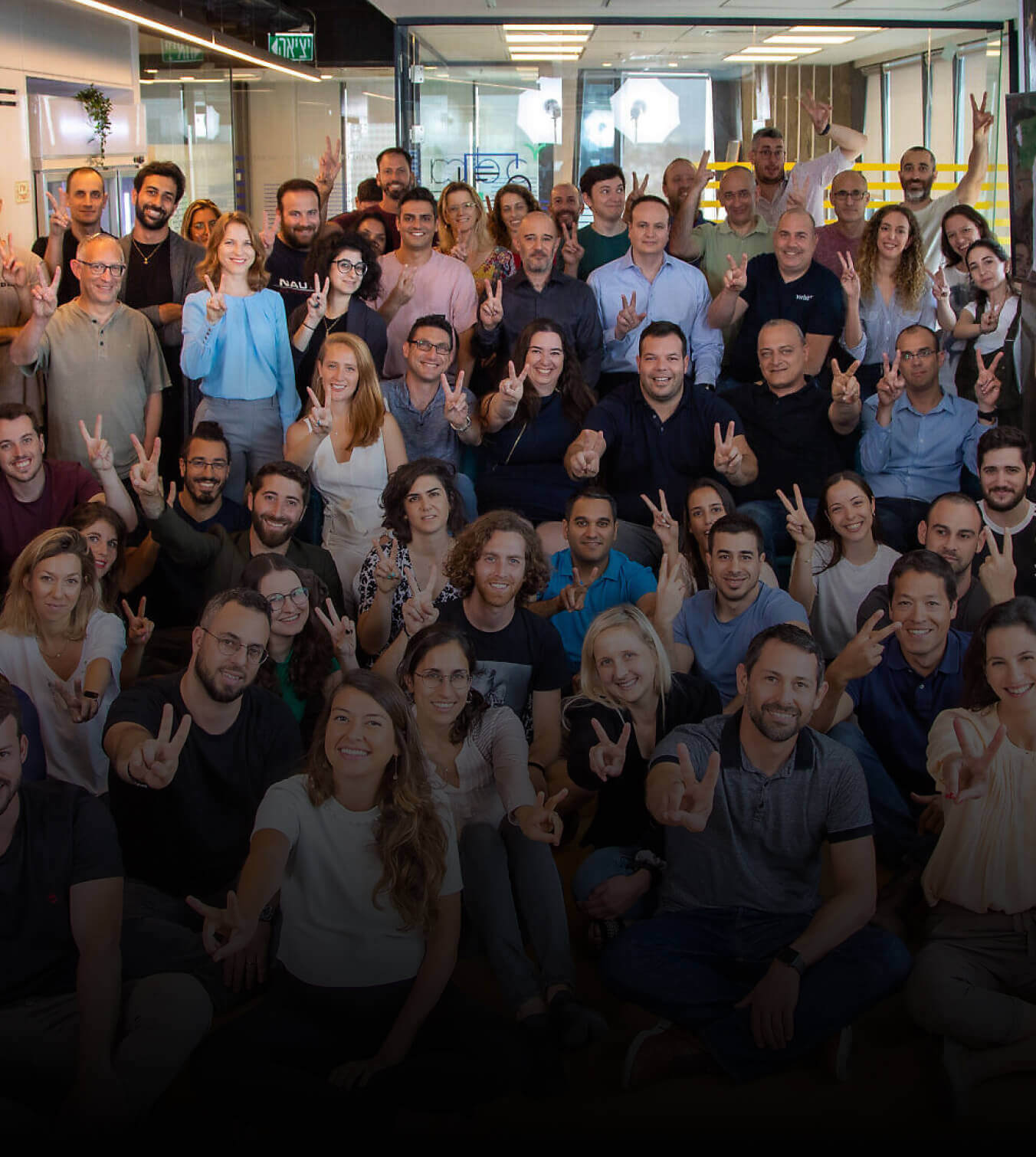The evolution of Machine Learning has brought about significant changes in the world of business. Being at the forefront of industry leadership, we thoroughly understand the advantages it offers & effectively guide companies to make informed decisions. Moreover, we provide all-inclusive support to businesses seeking to incorporate cutting-edge technology into their projects. Check out the top 10 companies for Machine Learning development in Seattle, & rest assured that you are partnering with the best in Seattle.
Zazz
Zazz is a distinguished Machine Learning Development Company based in the United States that has been consistently pushing the boundaries of software design & development innovation. Renowned as an industry leader, Zazz prides itself on its unwavering commitment & adopt latest technologies, refining seamless processes & nurturing creative talent.
The agency’s success hinges on a “bottom-up” strategy that prioritizes users at the heart of its software development. Indeed, the users’ footprints, journeys, & engagement metrics are integral to shaping the overarching digital experience at Zazz – a practice that sets the agency apart from its competitors.
List of Services:
- Product Strategy
- Prototyping & Concept Development
- Product Design
- Android Application Development
- iOS Application Development
- Flutter App Development
- Healthcare App Development
- React Native App Development
- Web Development
- Blockchain Development
- UI/UX Design Services
- Machine Learning
For businesses of all sizes, Zazz offers top-notch solutions catering to your unique requirements. Their team possesses extensive experience & resources to deliver end-to-end assistance to your projects, whether you are a growing startup seeking to test an MVP or an SME looking to optimize processes.
With a proven history of designing & maintaining digital solutions, they are equipped to handle your digital transformation needs. Hire app developers to get insights into the path of your business success. Check out their website for case studies & schedule an appointment with their knowledgeable consultants.
AppStudio
Based in the tech city of Toronto, AppStudio is a software design & development company that provides end-to-end solutions for businesses seeking truly innovative applications. Specializing in mobile & web applications, AppStudio’s dynamic & multidisciplinary team is committed to delivering unforgettable digital experiences for their clients. Regardless of whether you are a fledgling startup or an established enterprise, AppStudio has the skillset & resources to match their services to your specific business requirements along with affordable prices.
List of Services:
- Product Strategy
- Prototyping & Concept Development
- Product Design
- Android App Development
- iOS Application Development
- Flutter App Development
- Healthcare App Development
- React Native App Development
- IoT App Development
- Web Application Development
- Blockchain Development
- Machine Learning
STXNext
We are Europe’s largest Python software house. Using Agile methodologies, we provide more than 200 Python, React Native & full-stack developers for you to make your project a success in this competitive era.
Intellias
With 1,600+ employees worldwide, Intellias has expanded from a small, one-man business to a global company that delivers software development services from Ukraine, Poland & Germany. In a number of domains, their clients include Fortune 500 companies as well as leading technology innovators.
Fayrix
Fayrix provides world-class custom & offshore software development. Relying on 14 years of experience and a talented team of 1500+ IT professionals including 700+ developers, we are ready to execute software development projects of any scale.
In addition to flexible terms and competitive rates, we offer our clients different models of collaboration – time and material, dedicated teams & project-based outsourcing.
Neoteric
Neoteric specializes in supporting startups & enterprises with complete product development services & cater to every stage of the process & utilize AI to optimize performance. Their commitment is to aid partners in building successful software ventures by extending product teams & providing resources and expertise.
NeuroSYS
As a full-cycle software development company, they combine analytical & consulting skills to provide individually customized solutions for your business. Having an innovation-driven culture, we also provide services in AI & Deep Learning, as well as develop solutions for implementing these technologies on a commercial basis..
MobiDev
MobiDev excels at creating tailored software solutions, with expertise spanning from web & mobile development on iOS/Android & cross-platforms, to AR, IoT, hardware integration, AI & data science. They also specialize in microservices & cloud infrastructure, with a deep understanding of emerging trends & technologies. Trust them to deliver unique, expert & successful results.
Altoros
With over 400 employees, Altoros provides the methodology, technological building blocks, & end-to-end solution development needed to support digital transformation at scale for Global 2000 companies. By combining cloud-native apps, customer analytics, Blockchain & AI, they create competitive advantage products.
Netguru
At Netguru, their expertise lies in creating innovative digital products that empower users to experience a new way of doing things. They have partnered with top startups, Fortune 500 companies, & globally recognized brands to solve real-world challenges via their state-of-the-art software & product design. Their distinguished clientele has revolutionized industries such as banking, music streaming, language acquisition & transportation. Their products have garnered the attention of influential tech media outlets including TechCrunch, Business Insider & Product Hunt, solidifying their reputation as a leading player in the digital product development space.
In addition to changing how we interact with machines, machine learning is changing our interaction with the environment around us. In the last decade, machine learning has given us cars that drive by themselves, voice recognition, effective web searches, personalized recommendations, and a vast understanding of the human genome.Machine learning, a field of computer science, was first coined by Arthur Samuel in 1959 as the ability for computers to learn without explicit programming. This innovative discipline employs a range of mathematical techniques & algorithms to analyze data & improve its performance, allowing computers to refine their solutions and predictions through experience. Ultimately, machine learning systems are trained to recognize patterns & respond accordingly & have revolutionized numerous industries & are still transforming the way we interact with technology. But how does machine learning work?
Computers were originally designed to follow algorithmsAlgorithms are a crucial component of computer software & consist of a sequence of processes encoded in computer languages. To create these algorithms, computer programmers frequently collaborate with industry experts to design flowcharts outlining essential business procedures, which can be translated into efficient computer programs. These flowcharts carefully outline the steps required to achieve a desired outcome in the proper order, as well as any pertinent decision-making factors. By doing so, businesses can streamline their operations & achieve optimal efficiency in their day-to-day tasks.
Real-world scenarios often lack clear-cut procedures & definitive outcomes. Machine learning functions on a probabilistic basis, where tasks are conducted based on incomplete data & the results are assigned probabilities to determine their potential accuracy. This approach allows for a more versatile & adaptable approach to decision-making. It is appropriate for problems involving classification (classifying objects into groups), regression (discovering relations between variables) & grouping (grouping objects based on similar characteristics).
Recognize patterns:
- Objects in real scenarios
- Facial Identities or Expressions
- Spoken language
- Extract knowledge:
- Of free format, audio or video texts
- Email spam detection
Discover abnormalities:
- Unusual sequences of financial transactions
- Unusual patterns of sensor readings
- Make predictions:
- Share prices or exchange rates in the future
- What movies will a person like?
Machine learning is supported by many mathematical techniques, but the following are the most important:
Linear and polynomial regression
Regression is a statistical technique for analyzing the relationship between numerical variables. The iterative refinement process involves minimizing the errors between the predicted & actual output values. The fundamental principle in regression is that the output variable can be expressed as a weighted sum of several numerical output variables. A well-crafted regression model can unveil significant insights into the data & helps researchers & practitioners make informed decisions with accuracy & confidence.
Decision trees
Flowcharts shaped like trees illustrate ramifications of possible outcomes. Many of these tree diagrams use binary branching (two options) based on current values or data attributes. For large volumes of data, many of these multiple decision trees can be created, which together form a consensus decision on the results.It is possible to use decision trees to solve classification & regression problems.
Neural networks
Based on how the nervous system & brain process information, this concept was developed. A large no. of interconnected processing elements work together to solve a specific problem, typically a classification or pattern matching problem. Each neuron “votes” on the outcome of the decision, which could urge other neurons to vote, so the votes are counted creating a classification of the results depending on the support each has received.
Bayesian network
Belief networks, or graphical models, are employed to depict knowledge about an unknown sphere. These models represent causal relationships between variables through a probabilistic graph. Nodes on the graph represent random variables, while probabilistic dependencies are demonstrated through the edges between them. This allows experts to understand complex relationships within complex systems. For example “red sky at night” could lead to a 75% chance of “good weather.” These conditional dependencies are frequently estimated using statistical and computational methods.
Markov chains
There is an assumption that future states are solely determined by the present state, not by the sequence of events leading up to it. The behavior of a baby can be modelled using a Markov chain, where the various observable states, such as “play”, “eat”, “cry” & “sleep”, form a comprehensive list of all possible states. These states together with other behaviors make up the “space of states”.
In addition, a Markov chain provides the probability of moving or “transcending” from one state to another. A classic example is the likelihood of a baby falling asleep while playing without crying in the next five minutes. As such, Markov chains provide a valuable tool for mapping and predicting the behavior of complex systems such as infant behavior.
As a result of the vast number of machine learning algorithms available, this technology is restricted to companies with the expertise to select the right algorithm for the job. The adoption of machine learning will be more widespread once these technologies are simplified and delivered as a service. It is this goal that IBM Watson is striving to achieve with its machine learning services.
Created on Apache Spark, Watson machine learning intelligently and automatically builds models using open machine learning libraries and the most understandable algorithm groups in the industry. Leveraging proprietary cognitive assistance for data science, their technology expertly assesses each ML algorithm against the data received to provide the optimal solution that fits your specific requirements.

Recent Articles
Staff Augmentation vs Traditional Hiring: Choosing...
Table of Content 1. Understanding Staff Augmentation 2. The Growing...
Empowering Healthcare Through Mobile Apps: A...
Mobile applications are transforming healthcare industry, and if you don’t...
Top 10 Challenges in Software Development...
“The task of the software development team is to engineer...



















